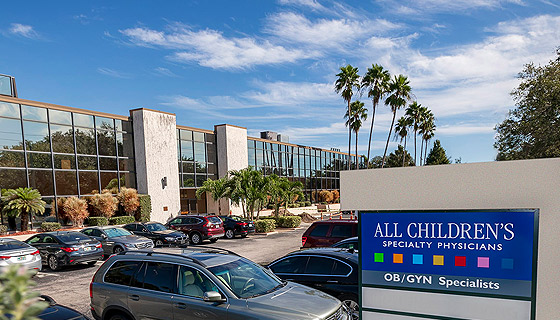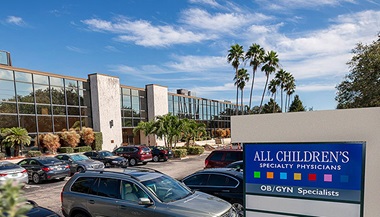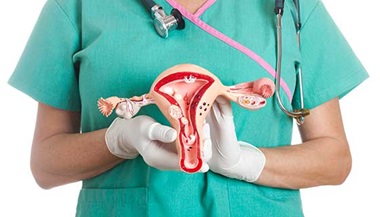Why Can’t I Get Pregnant?
Reviewed By:
When you’re ready to start a family and you’re not getting pregnant, it can be frustrating and overwhelming. Especially if you’ve tried the conventional methods to maximize your chances: having frequent intercourse during your fertile window, tracking your temperature every morning and using tools like ovulation tracker apps and predictor kits.
You may start to wonder — is this a medical problem or do I simply need to be more patient? You’re not alone. One in 8 couples struggles to conceive. Chantel Cross, M.D., a reproductive endocrinologist and infertility specialist with the Johns Hopkins Fertility Center at the Johns Hopkins Health Care & Surgery Center — Green Spring Station in Lutherville, Maryland, explains what factors might be affecting your ability to get pregnant and when you might consider infertility treatment.
How is infertility defined?
Infertility is defined as the inability to become pregnant after one year of unprotected sex for women under 35 and six months for women 35 and older.
“The vast majority of people will become pregnant within the first 12 months of trying to conceive with regular unprotected intercourse,” says Cross. “After six months to a year of trying — depending on a woman’s age — we recommend that a couple comes in for an infertility evaluation. At that point, it’s more likely that there’s a problem preventing pregnancy.”
Medical Conditions Affecting Infertility
One or more factors may contribute to infertility. The most common problems include:
Fallopian tube obstruction
Blocked or scarred fallopian tubes that prevent sperm from reaching the egg are a frequent cause of infertility, especially among African Americans. A history of pelvic infection, sexually transmitted disease or endometriosis increases your risk for fallopian tube obstruction.
Irregular uterine shape
An irregularly shaped uterus can make it difficult for a fertilized egg to attach to the uterine wall. Abnormalities can be caused by uterine fibroids (noncancerous growths on the uterine wall) or scar tissue from surgery or infection. It could also be the way your uterus is shaped.
Ovulation disorder
Sometimes women don’t ovulate regularly and consistently. Sporadic menstrual cycles can be caused by conditions such as polycystic ovary syndrome (PCOS), hormonal imbalances or obesity. Ovulation can also be impacted by excessive exercise, stress or low body weight.
Male factor
In more than 30 percent of infertility cases, there’s a problem with sperm such as low sperm count or abnormal sperm movement or shape. Male factor infertility can be due to a number of reasons including trauma, medical conditions like diabetes and unhealthy habits such as heavy drinking and smoking.
The Impact of Stress on Fertility
It’s normal to feel anxious when you’re trying to conceive. But whether or not that impacts fertility is up for debate. What we do know is that managing stress is good for you, no matter what life stage you’re in.
Age Is a Major Factor for Women
You’ve probably heard the phrase “your biological clock is ticking.” This phrase refers to your fertile window. Women can’t conceive after their menstrual cycles stop, usually sometime in your 40s or 50s. Men produce sperm throughout their lives, but women are born with a set number of eggs that decreases as you age.
“At birth you have about two million eggs but naturally lose hundreds of thousands of them by the time you reach puberty,” says Cross. “Your body continues to lose eggs no matter what you do. And the rate at which women lose eggs accelerates around the age of 37.”
The quality of eggs stored in the ovaries also declines over time. “The eggs you’re born with are naturally paused in the process of dividing their DNA,” Cross explains. “They complete that process, or ripen, when you ovulate them 20 to 40 years later. The longer eggs are stuck in the mid-division stage, the more likely that process will go wrong — creating eggs with the wrong number of chromosomes. That results in not becoming pregnant, experiencing miscarriages or having babies with genetic syndromes due to chromosomal abnormalities.”
The bottom line: The quality and number of eggs a woman has decreases throughout her lifetime and egg loss accelerates around the age of 37, which makes it more difficult to become pregnant.
Do I Need Infertility Treatment?
If you’re having trouble conceiving, an infertility specialist may be able to help. The first step after 12 months of trying to conceive (six months if you’re 35 or older) is to schedule an infertility evaluation. This multipart assessment includes:
- Physical examination
- Pelvic ultrasound
- Blood work
- Semen analysis
- Evaluation of the uterus and fallopian tubes (by specialized x-rays or ultrasounds)
If you or your partner have a known medical condition that affects the uterus, fallopian tubes, sperm or ovulation, talk to your doctor to see if you should be evaluated sooner. For example, if you know that both of your fallopian tubes are blocked, you’ll need to see an infertility specialist even before trying to get pregnant.
The Johns Hopkins Fertility Center

Our fertility specialists will work with you to identify the unique causes of your infertility and help you realize your dream of parenthood.
Infertility treatment options
Depending on the results of your infertility evaluation, there are several treatment options:
- Ovulation medications: Oral or injectable medications improve ovulation patterns or may encourage more than one egg to be released each month, increasing the likelihood of conceiving.
- Intrauterine insemination (IUI): This procedure can be performed on its own or in combination with ovulation medications. A small catheter places good-quality semen directly into a woman’s uterus, eliminating the need for sperm to swim up the vaginal canal.
- In vitro fertilization (IVF): During this procedure, one or more eggs is removed from the ovaries and fertilized with sperm in a lab setting. The resulting embryo is then implanted into the uterus, bypassing fertilization challenges within the body.
Every couple and their journey to start a family is unique. Talk to your doctor about your options.
Sign Up for Our Free Newsletter

One of the best things you can do to protect and improve your health is to stay informed. Your Health is a FREE e-newsletter that serves as your smart, simple connection to the world-class expertise of Johns Hopkins.







